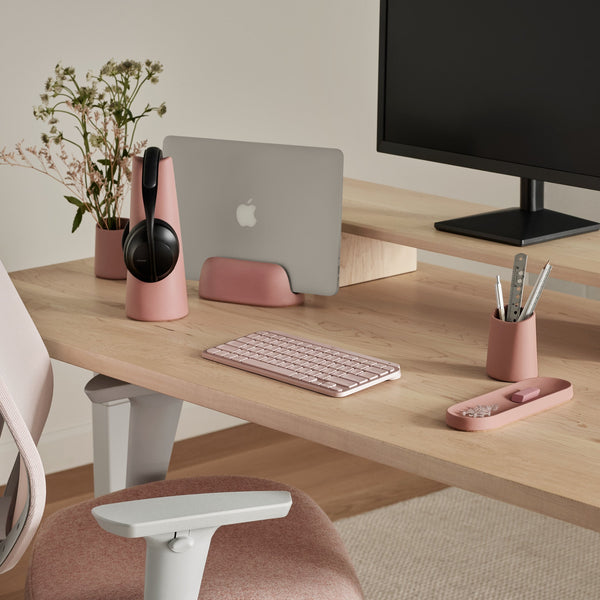With the beginning of a new decade, the working world is going through an unprecedented revolution. It goes without saying that a global pandemic forces employers and workers to review their productivity methods; what productivity means had to be completely redefined. While some might have been reluctant to this change, others were relieved by this unexpected transformation of the labor market.
Productivity with a Capital P

Let’s start here: how do we define productivity? In a capitalist economic model like the one we are evolving in, productivity measures the efficiency with which our economy transforms inputs into products. In other words, we qualify as productive employees when we produce something.
Ask yourself the question: when comes the time for you to close your computer and call it a day, how do you judge how productive your day was? More often than not, answers will relate to how much you got done. And depending on the job, answers will vary widely from one individual to the next. Establishing an overarching productivity scale is, therefore, not only unthinkable, but it is impossible.
This confinement period allows us to observe, however, both through traditional media and social media, the different ways productivity is perceived. It often involves quantifiability. How many new recipes did you try? How many books did you read? How many online training courses did you take, or minutes did you spend exercising? But for numerous people, learning to bake bread from scratch seems ludicrous as they crawl under the pressure of trying to stay “productive” while teleworking. Adapting to working from home during this pandemic brings important challenges, like taking care of children or worrying about the health of an elderly parent, that inevitably hinders how much work can be done in a day.
Performance anxiety

How we define productivity might be negatively impacting our competency, and most importantly, our health. In our society, the concept of productivity has been swallowed whole by a culture that is performance-driven and often detrimental to our wellbeing. The pressure we put on ourselves to excel, and do it quickly, in every individual task that is listed in our “responsibility catalogue” might be driving us directly into the omnipresent wall that is performance anxiety. The current climate is forcing us to ask ourselves the following question: how do we redefine productivity to have both a fulfilling relationship with work, and be efficient and successful?
Why is redefining “productivity” essential?

In an era where multitasking has become necessary* to survive the work week, we realize that this method could be directly related to a decline in performance. An increasing number of books, articles and podcasts explain that concentrating on one task at a time is actually optimal for our performance, but it often seems inconceivable to be efficient without working on multiple projects at once.
What we need to comprehend is that our incessant quest for “productivity” tends to obliterate major pillars of success in the workplace: creativity and ingenuity. These two elements are often suppressed by fatigue and chronic stress caused by performance anxiety and multitasking. With automatic learning and artificial intelligence executing an increasing amount of routine and administrative work in many fields, human contributions will become even more precious; it is therefore important to preserve and foster them!
This anxiety-inducing crisis is demanding us to take a step back, press “pause” and reevaluate what we consider to be a productive day. The desire to fit in this performance-obsessed culture forces us to put quantity over quality; the more we get done, the more productive we are! But productivity, while its exact definition will vary widely from one person to the next, should be measured by the quality of our work, how fulfilled we are by it, how much value it adds to our, and others’, lives.
At ergonofis, we strongly believe that a healthy relationship with work starts with a definition of productivity that is flexible and embraces quality, creativity, and ingenuity, not solely net output. We believe in taking a step back, and evaluating how work can be a fulfilling part of your life, rather than a stressful one. Success and competency lie in a definition of productivity that does not serve to perpetuate the performance-driven culture, but rather one that focuses on growth.
How to overcome challenges related to productivity during this crisis?

It is evidently impossible to put everyone in the same boat since the situation varies from one household to the next. While some people have lost their jobs and are facing widely different challenges, others find themselves working at an accelerated rate. For the latter, they must find new ways to approach their work methods while navigating unfamiliar waters. Here are our 3 tips to help with the transition:
1. Cultivate a healthy relationship with fluctuations in productivity (yes, it’s possible!)
It is critical to learn what your boundaries are, both physical and intellectual. It will allow you to use your energy wisely. Learning to listen to your body when it is sending you signals is vital to your wellbeing, and consequently, your productivity. We recommend using the Pomodoro technique, which alternates between periods of work and periods of rest to maintain optimal cognitive faculties and concentration levels all day long.
2. Learn to delegate
Like many who are currently working in a reduced team because of the historical number of layoffs the pandemic engendered, you might not have the tools to perform at your full potential. You might find yourself with additional tasks on your to-do list, but without the necessary expertise to fulfill them successfully. If you feel overwhelmed or overworked, we encourage you to reach out to qualified people that you trust. It is by combining your strengths with your colleagues’ that you will accomplish quality and fulfilling work.
3. Set realistic goals
Productivity is not a question of time management, but rather one of being able to channel your energy appropriately. We all have a different tolerance threshold when it comes to stress and anxiety, two factors that can hinder your productivity. Start with setting attainable daily goals, then establish weekly and monthly ones. By doing so, you will be able to plan your schedule accordingly, allowing you to set time aside for necessary breaks that will help make space for growth.
To conclude, it is crucial to understand that productivity relies on balance, whether we are living through a pandemic or not. Our workloads will vary throughout our career, so we need to redefine “productivity” to learn to live with fluctuations in our efficiency in the healthiest way possible.
With the right tools, it is possible to cultivate a beneficial relationship with productivity that results in quality work that will make you proud. Learn to listen to the signals your body sends you and respect your limits, and you will have done most of the work. Give you time to do this necessary work to maintain good mental and physical health.
While productivity stays a measure of performance, remind yourself that it does not solely rely on quantity. Quality, personal fulfillment, and room for growth are fundamental factors to include. While we know that it is easier said than done, and your managers might have a different approach, we strongly believe that this will make you a better worker, even a better person. That said, remember that, at the end of the day, you are and will always be much more than your net output.






2 comments
This blog post (assuming it applies to the company for reals) makes me more satisfied with my choice to order a desk from you, and yet more understanding that its taken weeks and hasn’t even shipped yet.
C est un message qui nous obligent à penser comment nous voulons que notre avenir soit. Une belle vision d entraide et de partage. Félicitation pour ce témoignage qui nous fait réfléchir.
Leave a comment